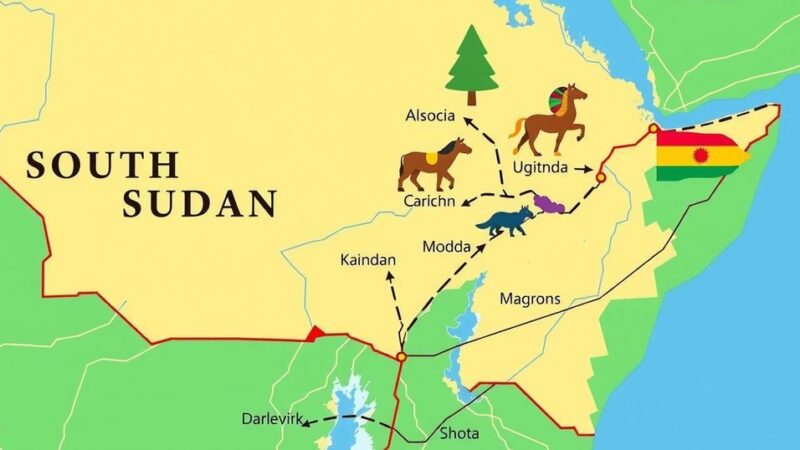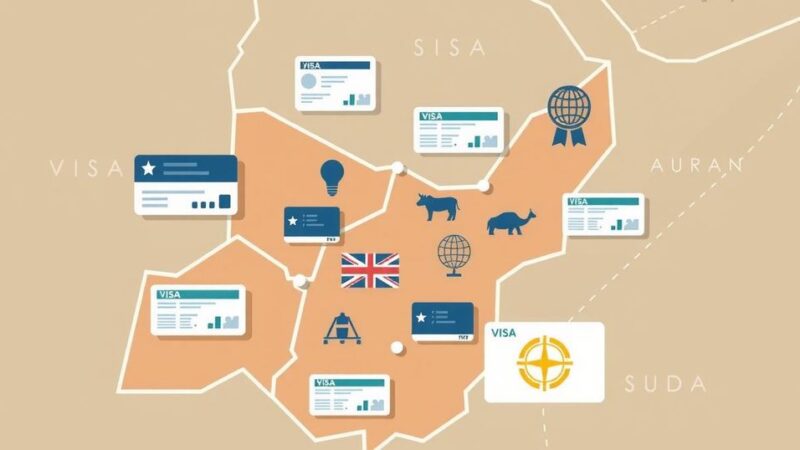On March 10, the Syrian interim government and Kurdish-led Syrian Democratic Forces (SDF) signed a landmark deal aimed at reconciling military and civilian institutions. This agreement seeks to integrate all factions into the Syrian state amidst rising violence and regional pressures. Economic benefits from oil control and disputes regarding minority rights depict the complexities of this peace initiative, which has garnered both international support and internal resistance.
In a pivotal development towards national reconciliation in Syria, the interim government and the Kurdish-led Syrian Democratic Forces (SDF) formalized a significant agreement on March 10. This agreement aspires to unify the military and civilian frameworks under the Syrian state, becoming especially pertinent as President Ahmad Al-Sharaa seeks legitimacy amid heightened international scrutiny following violent incidents involving minority Alawites.
Analysts anticipate that this agreement could substantially alter Syria’s recovery path post-conflict. According to Nanar Hawach of the International Crisis Group, the geopolitical context under which the deal was struck—marked by severe security challenges and regional pressures—was crucial. The Kurdish leadership, notably SDF commander-in-chief Mazloum Abdi, is viewed as a unifying figure capable of fostering inclusivity for diverse community identities within Syria’s future.
The deal emerges against a backdrop of violence that has exacerbated tensions among Syria’s ethnic groups. In recent clashes, particularly in Jableh and Banias, retaliatory violence resulted in significant civilian casualties, which echoes the ongoing struggle for stability. Abdi characterized the violence against Alawites as a “systematic campaign against Syria’s minorities,” suggesting intervention is necessary to avoid further escalation.
The agreement is expected to be implemented by year-end, recognizing the Kurdish community’s rightful place within the Syrian state. Furthermore, it asserts an end to hostilities in SDF-dominated areas, which have faced threats from the Turkish-backed Syrian National Army since December. This accords rights vital to Kurds long suppressed prior to the present conflict.
Significantly, the deal also encompasses economic dimensions, particularly regarding Syria’s oil sector. Joshua Landis from the Center for Middle East Studies notes that control over oil resources will empower the interim government while still benefiting Kurdish factions, thus enabling foreign investment vital for reviving the economy. Such development is essential for the country’s reconstruction, estimated to require upwards of $400 billion.
Hawach highlighted that the agreement’s success could not only yield economic growth—especially since northeast Syria is resource-rich—but also facilitate unified efforts to confront the remnants of extremists like Daesh. Endorsements from international powers and UN representatives signal a cautious optimism about this reconciliation pathway.
Nevertheless, the overarching success of this initiative will greatly depend on how effectively the parties navigate the numerous unresolved details concerning reintegration. While giving the SDF some level of autonomy, outstanding logistical challenges, particularly in military integration and control of strategic locations, present uncertainties.
Despite this progress, Landis cautioned that Al-Sharaa’s vision leans towards a centralized state without offering substantial autonomy to ethnic minorities, implying that minority rights may continue to be contested. A temporary constitution signed recently has prompted resistance from Kurdish political factions, who argue that it centralizes power and threatens democratic governance.
As the SDF’s political wing pushes for an overhaul of this constitution, the broader implications of these negotiations continue to unfold amidst a complicated political and social landscape in Syria which demands further examination and dialogue.
The recent agreement between the Syrian interim government and the Kurdish-led SDF marks a critical step towards national reconciliation in Syria. While it holds the potential to integrate military forces and stimulate economic recovery through oil management, its success hinges on addressing unresolved issues related to military control and minority rights. Moreover, the reaction of Kurdish factions against potential centralization of power underscores the need for genuine consensus to achieve lasting peace. As this complex situation evolves, continual monitoring and engagement are necessary to navigate challenges ahead.
Original Source: www.arabnews.com






